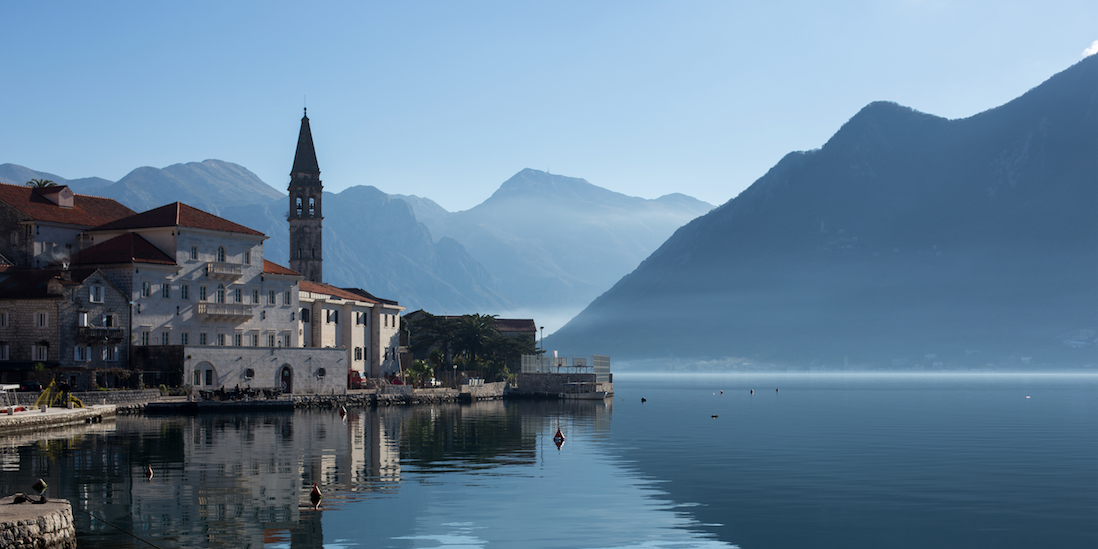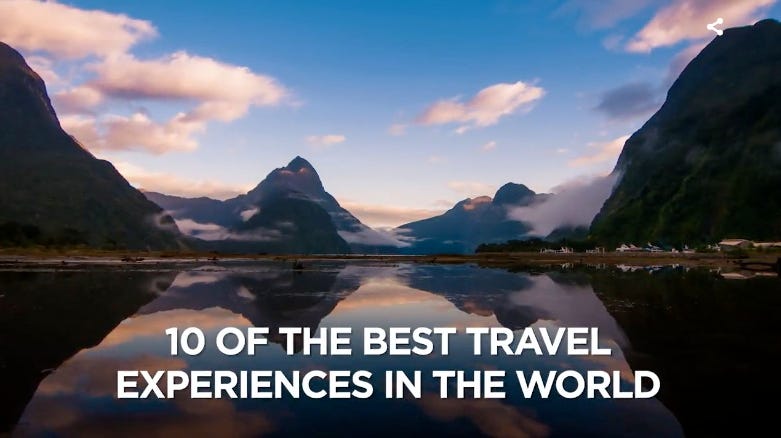One of Eastern-Europe’s smallest countries is also its most visually arresting and most underrated. But for the discerning traveller who has an eye for luxury and a quieter side of cool, Montenegro, with its Adriatic ‘fjords’, striking mountains and elegant marinas, is the in-the-know destination of choice.
Why go?
Croatia’s under-the-radar neighbour is one of the most beautiful and culturally rich gems of this slice of the Adriatic Sea. There are also myriad personalities within Montenegro, adaptable to any holidaymaker. The country really is a choose-your-own-adventure story: verdant slopes and snow-capped mountains for an almost-alpine retreat; historic towns with cobbled streets and Medieval cloisters; fortified ruins and labyrinthine passageways with sleeping cats in windowsills; unexpected vineyards in lush valleys and churches mysteriously floating in the middle of the sea. There is also a distinctly luxurious sheen to Montenegro – glamorous marinas, gorgeous five-star palace hotels and sleek, cool, beach bars. The most luxurious part of all is, of course, the fact that this is still a somewhat unspoilt holiday destination. The rarity of the place gives everything an extra energy.
Where to stay
Whatever your taste, there is a slice of Montenegro for you. The country’s USP is its dazzling selection of bays, frequently dubbed the Montenegrin ‘fjords’. Dotted around these vast expanses of mountain-hugged clear blue water, are beautiful villages, towns and resorts, each with its own unique charm. The region boasts some of Montenegro’s most luxurious hotels, from The Chedi in Lustica Bay, which has a true sense of seclusion to it, to One&Only Portonovi in Herceg Novi, which lends an opulent grandeur to its interiors while offering up an unfiltered view of the waters beyond.
We stayed in Regent Porto Montenegro, right in the centre of the Bay of Kotor. It sits before a majestic luxury marina and from almost every angle you have a view of the picturesque bay beyond, with masts of boats bobbing in the distance. It boasts two infinity pools – including a small, secluded balcony offering on the first floor, which was truly sublime – and rooms have a subtle, post-modern nautical theme; all rounded edges, deep blue shades and port-hole windows. The dining and spa offerings are excellent and the hotel itself has that quiet, refined air of luxury which is surprisingly difficult to achieve with as much restrained panache as the Regent.
For something a little different (or if you’re intent on travelling around Montenegro), try Tivat, one the biggest and busiest towns in the locality, which strays on the edge of the bays and is a great place to base yourself for exploring. For a unique city break feel, La Fleur, a chic boutique hotel in the heart of town, is your best bet. Or, if you want to explore the out-of-the-way mountainous ranges, the Durmitor national park is a rare treat for skiers and hikers alike. Though the high-end offerings are few and far between (Hotel SOA is the standout option), the real luxury here is how undisturbed this expanse of nature is.
What to do
One of the undisputed ‘must- dos’ of Montenegro is a boat tour of the bays. There are plenty of offerings in every marina, with sleek speed boats that will zip you past the breath-taking scenery of the inlets and allow you to ‘village hop’.
We used Montenegro Tour Guide, who were insightful, friendly and funny. Approaching by boat, with our guide Rosanda, we explored the picturesque town of Kotor. This is a must-visit, replete with historic charm; old Orthodox and Catholic churches drizzled in Baroque detailing and winding sandstone alleyways embraced with spindly caper bushes. Squares are scattered with cafés, restaurants and bars, overlooked by balconies – with hanging laundry blowing in the breeze – and stone cloisters from the region’s years as a province of Venice. Kotor is perfect for a day or two of exploration, with its bustling market, plenty of museums and historic churches, plus the city walls and fortress carved into the mountain side, which the more adventurous can climb for an unprecedented view over the bay.
Perast, a sleepy alternative to Kotor, is also well worth a visit. The Unesco heritage town has some of the finest local restaurants in the area and is undoubtedly one of the most picturesque spots in Montenegro. Then there is Budva, which is ideal for nightlife (Trocadero and Sparta are our recommendations) and Porto Montenegro itself is the best for sophisticated bars, restaurants and luxury shopping. It also boasts Buddha-Bar Beach – the ideal spot for a lazy day of poolside cocktails and sushi or live DJ music by night.
Porto Montenegro is home to an old shipyard which is the proud owner of a former Yugoslavian submarine. It now forms the base of a maritime museum, and you can climb on board and explore it. It is a most unusual addition to any trip and offers a fascinating up-close-and-personal insight into what life at sea for these submariners must have been like.
Further inland, at the base of the Prokletije mountain range, Plav is not to be missed. It lies on Lake Plav, a glacial lake of majestic beauty, and is a dream area for any outdoorsy types keen on hiking or climbing. The town itself is filled with its own notable charisma; Romanesque designs, 17th century watchtowers, and natural springs on its outskirts.
Where to eat
Comte Restaurant in Perast, situated right on the water and accessible from the town and by boat from its own jetty, serves up a view almost as mouth-watering as its array of local delicacies. The seafood here is second-to-none and you won’t want to skip the Perast specialty: Peraška torta – an almond cake that defies description and is the product of an ancient and closely guarded secret recipe.
Roberto’s Mare in Porto Montenegro is filled with atmosphere and the perfect choice for a buzzy late-night meal overlooking the marina, while Kotor’s Galion is another culinary gem with a sublime view.
And finally, don’t skip…
…Our Lady of the Rocks, a Unesco World Heritage site. It is truly unique: a church built on a manmade island in the middle of the bay of Kotor, off the coast of Perast. According to legend, it was constructed over several centuries after sailors in 1452 spotted a painting of the Madonna and Child sitting on the rocks on that very spot and, whenever they passed, would add rocks until the islet emerged. The tradition remains today and a museum attached to the church, which was fully renovated in 1722 and is a baroque marvel, is full of trinkets, icons and gifts left by sailors and pilgrims alike over the years.
How to get there
Direct flights from the UK go to either Tivat or the capital Podgorica but, if heading to the bays of Montenegro, check out the more frequent direct flights to Dubrovnik in nearby Croatia, as it is a roughly hour and a half drive across the border.







